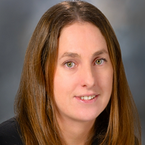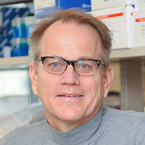AACR-Supported Scientists Gave Keynote Talks at the 2020 AACR Special Conference on Pancreatic Cancer (September 29-30, 2020)
Pancreatic cancer is forecasted to become the 2nd deadliest cancer in the United States by 2030. The AACR, in partnership with the Lustgarten Foundation and Pancreatic Cancer Action Network (PanCAN), brought together top scientists in the AACR Special Conference on Pancreatic Cancer.

AACR President-Elect David A. Tuveson, MD, PhD, one of the first recipients of the PanCAN-AACR Career Development Award (in 2003), gave the keynote lecture. Dr. Tuveson presented the seven deadly hallmarks of pancreatic cancer – effectively summarizing what has been learned about the disease and laying down the key open scientific questions that need to be addressed. These hallmarks include: chronic inflammation, a desmoplastic stroma, dysregulated metabolism, early metastasis, undruggable KRAS, rapid deconditioning of patients, and deficiencies in diagnoses.

The Rising Star Keynote speaker, Florencia McAllister, MD, has been awarded multiple grants including the 2012 Samuel Stroum – Pancreatic Cancer Action Network – AACR Fellowship. In her talk, she highlighted the role of the gut-tumor microbial axis in this disease. She and her colleagues published their findings last year on the composition of the tumor microbiome in long-term and short-term pancreatic cancer survivors, the influence of the gut microbiota on tumor microbiota, and the impact of the tumor microbiota on the anti-tumor immune response. They have more recently focused on how IL-17 plays a role in this anti-tumor immune response by excluding CD8+ T cells from tumors through the recruitment of neutrophils and formation of neutrophil extracellular traps.

With an encouragement to collaborate beyond the conference, the scientific meeting was closed with two keynote talks on team science. The first speaker, 2017 PanCAN-AACR Career Development Award recipient Vinod Balachandran, MD, shared results of his efforts to understand the immune mechanisms behind the long-term survival of a subset of pancreatic cancer patients (9% survive > 5 years). In collaboration with computer scientist and physicist colleagues, his group developed a computational model to identify and prioritize the most immunogenic neoantigens. He and other clinician-scientists are now exploring the safety and immunogenicity of a neoantigen peptide vaccine based on these neoantigens, in a phase I clinical trial.

Dr. Balachandran’s and Dr. McAllister’s mentor, Dr. Steven D. Leach, MD, gave the final keynote talk – sharing with attendees insights gained as part of pancreatic cancer research teams. Dr. Leach speaks from decades of experience, supported in part by a 2015 Pancreatic Cancer Action Network-AACR Research Acceleration Network Grant and Stand Up To Cancer-Lustgarten Foundation Pancreatic Cancer Dream Team Grant. He pointed out the strengths of collaborating in small and large teams. For one, small teams tend to disrupt science and technology with new ideas, while large teams tend to develop existing ideas. He noted that both kinds of teams are essential to a flourishing scientific community. The symposium was fittingly closed with an announcement for a grant opportunity for the next generation of female and underrepresented minority pancreatic cancer scientists.